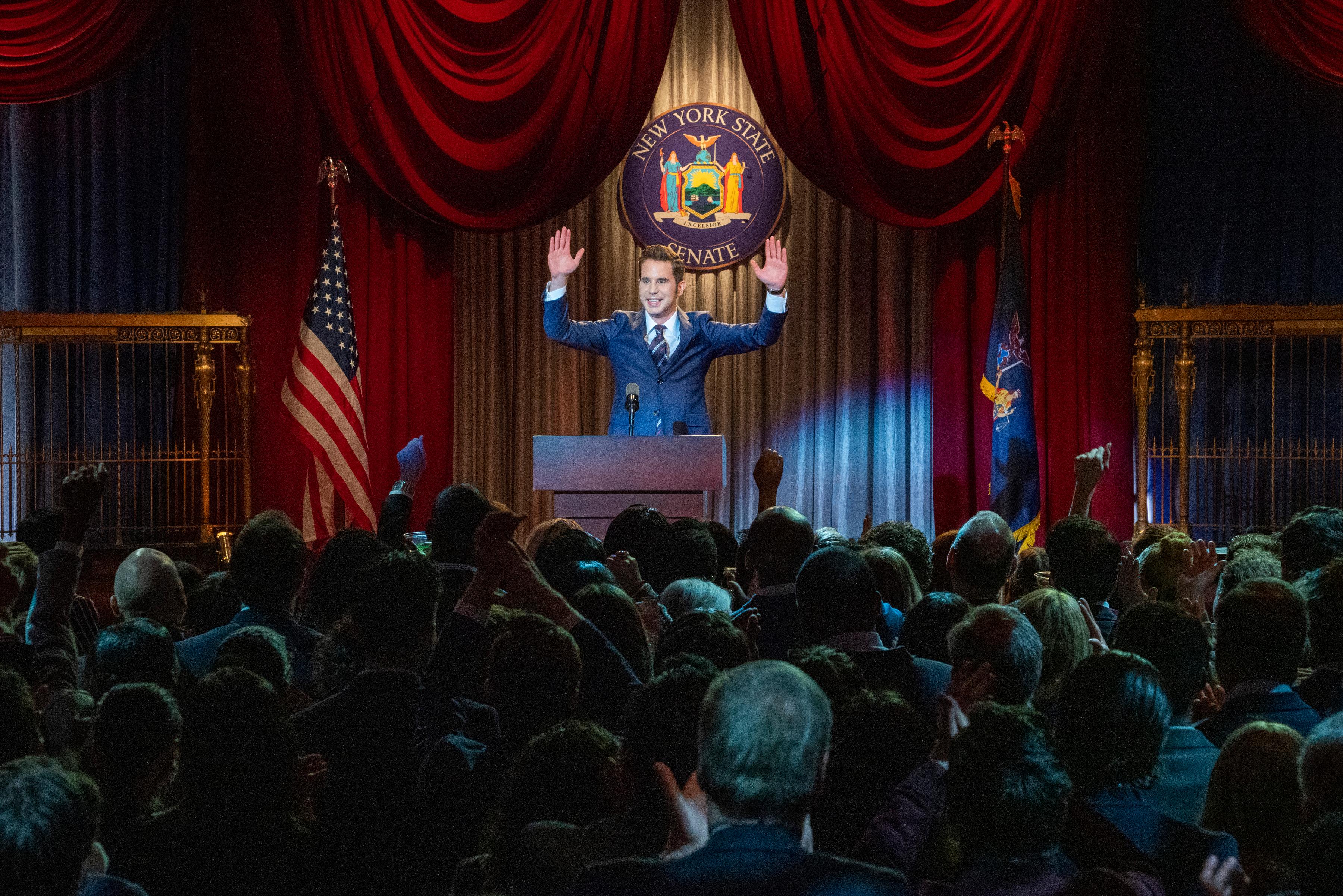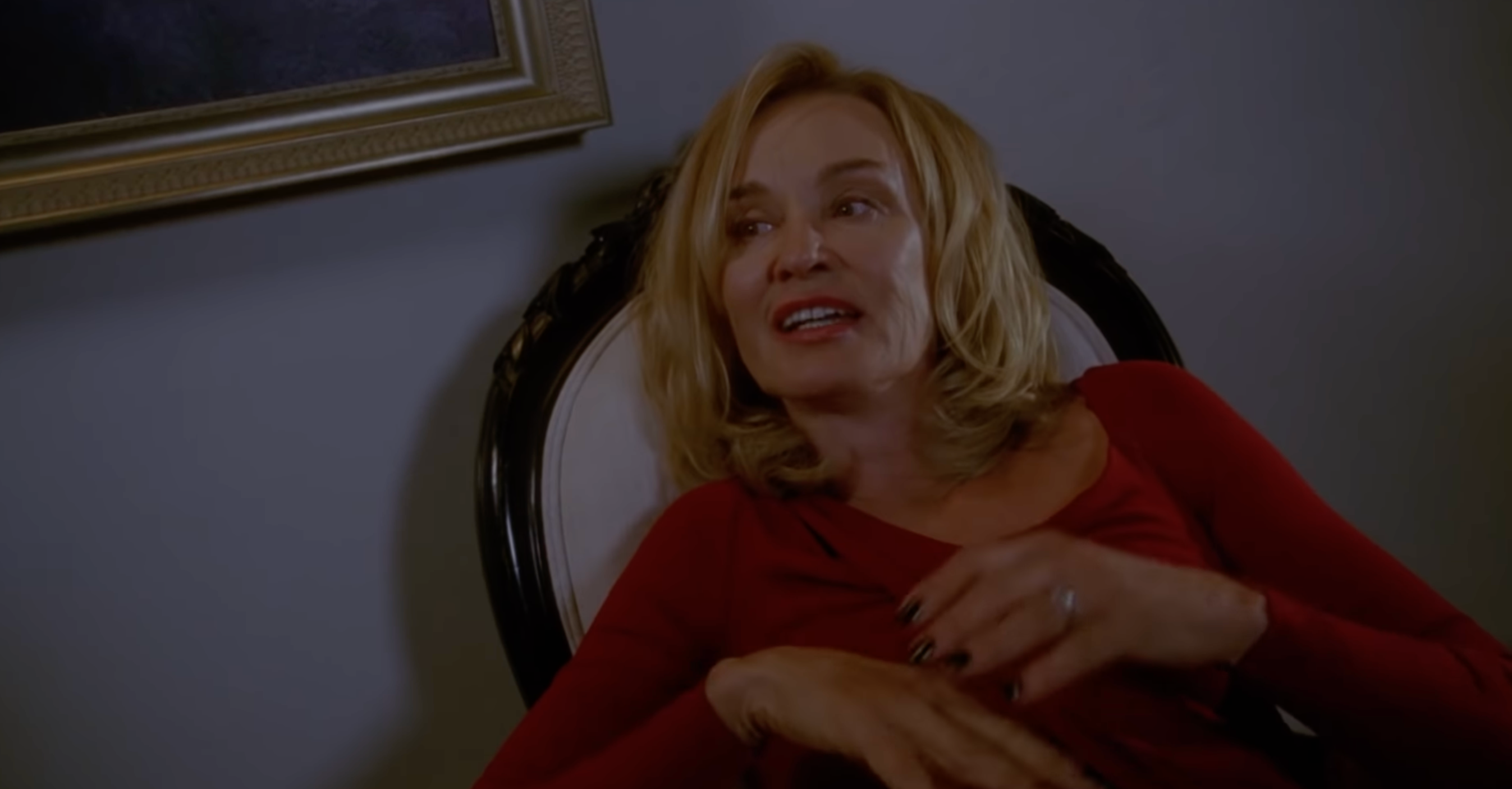Why Are Ryan Murphy Characters So Intoxicating? A Deep Dive
Published Aug. 30 2021, 11:07 a.m. ET

Ryan Murphy is a groundbreaking creator in Hollywood: a force who has brought female and queer representation to the forefront of TV to not only be watched but worshipped. Via the likes of Scream Queens, The Politician, Hollywood, American Horror Story, and more, he has proven that those formerly pushed to the fringes of the frame have stories worth telling, worth hearing. Those unequivocally silenced and scorned by social repression — women “past their prime,” gay men striving for success, mothers who are more than their maternity — receive an overdue spotlight in front of Murphy’s camera.
He is a Hollywood powerhouse whose distinct approach to storytelling has been revered and ridiculed at the same time. Murphy paints his characters in an expressionist fashion, distorting reality to create larger-than-life ideals.
Murphy does not revel in creating people but in presenting performance. His characters often feel like an ode to the cinema of a bygone era. The pointed dialogue that far exceeds everyday communication in its artful specificity. The lovers whose passion is so palpable it’s dramatized eroticism. The woman enduring a meltdown — exposed via smudged, black mascara.
Murphy takes humanity and does not reflect it for what it is, but rather revamps it to regale us with individuals who are just like us but heightened. He paints wide brush strokes and uses fleeting moments to define his characters. Quippy one-liners, brooding stares, pursed lips, or a flick of the wrist are the heart of Murphy men and women. It’s glamour. It’s glitz. It's extravagance. When we would clench our fists, Murphy characters flip the desk. It’s all so much more, or less than, human — depending on perspective.
What Ryan Murphy's characters boast is also what they lack.
Think of Fiona Goode (Jessica Lange) from American Horror Story: Coven. With a drink in one hand, a cigarette in the other, and a condescending raised chin, she became one of TV’s most iconic witches. Certain lines still reverberate in our minds: “I’m Fiona Goode. I’m in charge everywhere.” Or, “This coven doesn’t need a new Supreme. It needs a new rug,” famously uttered after she accidentally kills a fellow witch (and leaves bloodstains).
It’s the dastardly delivery that turns Fiona into an icon. When she discovers she has cancer, her nastiness surges to unforeseen heights, and Lange sinks her teeth into the shattered Supreme who is falling from grace, who is past her prime. Fiona has the swagger of a queen and the arched posture of a dancer, and you will never see her stumble as she sashays in stilettos. She channels her suffering via sin. And it's her ceaseless refusal to accept her fate — no matter how unattainable such resilience may be — that makes her so captivating. She exists beyond the realm of possibility. In being more unidimensional than is typically human (a figurehead for resiliency, strife, and superiority), she is more than anything humanly imaginable.
Chanel Oberlin of Scream Queens — whose defining characteristics are amorality and self-obsession — is similarly deliciously deviant. She is the leader of the pack with a roster of “minions” who report to her. Viewers are drawn to her because she is the manifestation of society's repressed egotism and arrogance. And, though these are not necessarily enviable attributes, who has never yearned for a more commanding presence? What use is it to suffer from a guilty conscience? Why let go of a grudge when revenge is more fun?
Then there’s Payton Hobart from The Politician. His greatest flaw, which is also his greatest asset and the source of all his problems, is ambition. Hobart is not necessarily a fully-fleshed-out person but an animated representation of unbridled determination. He’s resourceful, intelligent, manipulative, and only sort of has a heart.
Murphy asks, via his characters, "What happens when we remove the qualities that ground people? What happens when a femme fatale is fully unfettered? What happens when a maniacal murderer is all calculation and no caution?" Murphy, often by amplifying a single character quality beyond reason — fear, ambition, pride, power, lust — fosters captivation.
The evil ones become irresistible. The flawed are oh-so-fabulous, and the good guys (as few as there may be in Murphy's works) exist to be loved and only be loved. The appeal is in their lack of human multidimensionality, which can be surprisingly stifling in its limitations. While many critics argue that this is a fault in Murphy’s work — that he is a creature of craftiness over character — this is the very factor that makes his characters so intriguing. Murphy eschews the scope of humanity in favor of the scope of seduction. Like films starring Bette Davis, Joan Crawford, Marlon Brando, and Greta Garbo, sometimes we just want our stars to sparkle.
